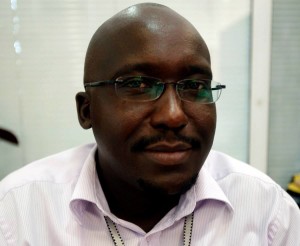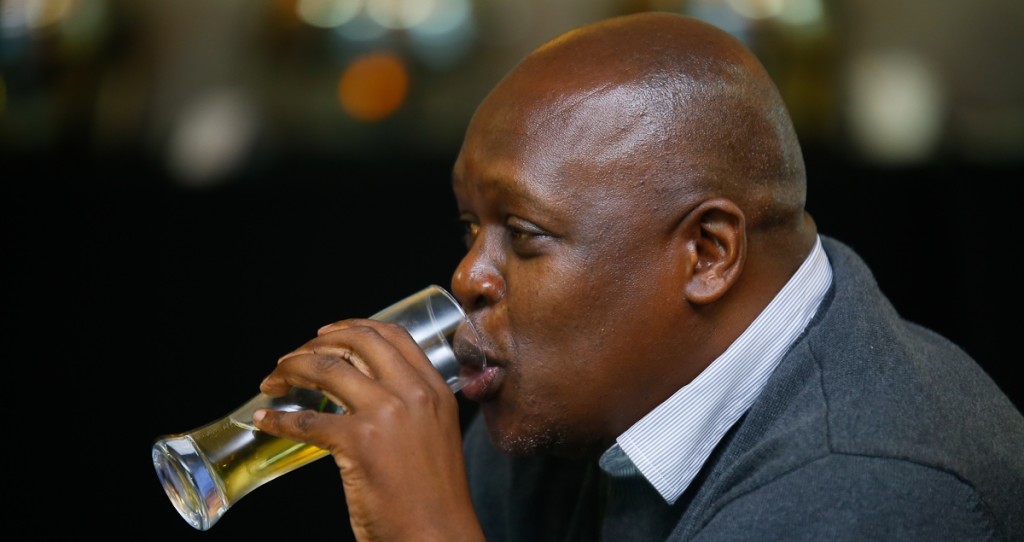GALAVA vs. NATION PART II
Be careful what you say – just in case you are required to eat your words. That’s the simple rule that Nation Media Group Editor-in-Chief Tom Mshindi ignored, if indeed he said some of the things contained in the affidavit sworn by Denis Galava.
The former Nation newspapers Special Projects Managing Editor, who was fired on January 20th, has sued the company for wrongful and unfair dismissal, seeking compensation amounting to Ksh425 million.
But the contents of his affidavit are overshadowing that humongous figure, arguably the biggest claim against an employer in Kenya. His main focus, of course, is to prove a case against Mshindi, a newsroom friend-turned-foe, who he accuses of cheer-leading his firing by alleging that Galava ignored laid down procedures in publishing an editorial critical of President Uhuru Kenyatta.
The issue of editorial policy came up but it was all argument and counter argument spiced with semantic discourse. In recollecting his conversations with Mshindi while at Nation, Galava opens a Pandora’s Box that gives Mshindi the image of a man for whom the end justifies the means and exposes the dirty little secrets that keep Nation Media Group buzzing.
From his unsuccessful bid to stop coverage of Eurobond and NYS scandals to a request to Galava and other editors to help him and the board meet President Uhuru, Mshindi’s journalism hood has been blown off to reveal a true businessman more interested in the bottomline.
Most shocking, however, is how Mr Mshindi perceives the Nation Media Group CEO, Joe Muganda, who was only five months old at the twin towers and perhaps still learning the dotting of i’s and crossing of t’s in newspapers.
The ill-fated briefing
In November 2015, Galava says in his affidavit sworn through Kemboy and Company Advocates, that Mshindi called him to his office and briefed him about major editorial changes in the pipeline.
“He lamented that newspaper had lost traction in the market because the two Group Managing Editors had failed to provide leadership in the newsroom; they did not follow instructions and were not executing the many ideas he had suggested to them to revitalise the newspapers,” Galava, who was employed by Nation in 2012 as Rewrite Editor and rose to head the Saturday Nation, says in his submissions.
To save the paper, Mshindi said he planned to redeploy them to “group-level positions that have very little interaction with the daily news circle and decisions” and appoint a new team led by Galava as Managing editor Daily Nation. He said this was part of the succession planning and also plugging the gaping holes in the newsroom leadership, according to Galava.

Meanwhile, Galava, then seen as a rising star, was to monitor the top editors and report back to Mshindi. “I pointed out that amounted to spying on my peers and seniors. Furthermore, I pointed out that like all the senior editors he (Mshindi) had unlimited access to all stories on the Nation server.”
Galava says he pointed out to his boss that the changes he was proposing were “too drastic” and asked him if he had discussed with the board. If the proposed changes were too drastic as Galava puts it, Mshindi’s response was a bomb.
Galava says Mshindi affirmed that he actually had the board’s support and ventured into discrediting the CEO and questioning his understanding of the media business.
“He observed that the CEO was clueless and could not conceptualise how the knowledge industry works,” says Galava, 41. “He added casually that Mr Muganda ‘only thought in terms of beer production chains and cigarette vending machines’.”
Mr Muganda joined NMG from Kenya Breweries Limited where he was managing director. For starters, KBL core business is producing and selling beer. Prior to joining KBL, Muganda had served in several senior positions at cigarette maker British American Tobacco, Unilever and Barclays Bank. He holds a Bachelor of Science in economics, accounting and financial management from Buckingham University and an MBA from University of Leicester.

Journalists are not known to have the gift of gab, but Mshindi stands out when it comes to eloquence, especially so his diction. He will often stop momentarily mid-sentence to choose the right word or phrase and how he said such stinging words against his CEO will remain a matter of discussion at Kimathi Street for some time.
Through these conversations, Mshindi also revealed something that may shock some and annoy others: that Muganda actually came fifth in recruitment interviews for the Nation CEO. Why and how he was picked only the Nation board knows, but it emerges from Galava and Mshindi’s conversations that Muganda’s job at EABL was hanging in the balance at the time and he had to jump onto the Nation offer.
Bad blood begins to flow
These revelations left Galava understandably shocked as well. “I left his office very downcast. I knew the relationship between Mshindi and his two principal deputies was testy but I had not anticipated it was that bad or I could be dragged into it as pawn. I was troubled but I could not confide in my peers for fear of sparking a rebellion against the editor in chief.”
In fact, Galava says he sought the advice of Saturday Nation columnist David Ndii. The economist was equally shocked and advised him to reject it as it “was unethical and professionally wrong.”
The following day, Galava returned to Mshindi’s office to deliver his No response. Mshindi, who was checking something on his smartphone, waved him out of his office. Barely a week later, Galava says Mshindi presented the proposals – this time without names – to the two group managing editors and three other managing editors, who also rejected them. “I have never felt so vindicated,” he says.
Since then, Galava says, Mshindi’s attitude towards him changed. “I believe the controversy over the editorial provided him with another perfect opportunity to settle scores with me for refusing to be used as pawn in his insidious power games at NMG.”
Recommended >> Denis Galava recounts his dramatic sacking
>> For Nation CEO, tough challenges ahead
[vc_row][vc_column][vc_column_text]
[/vc_column_text][vc_column][vc_row]























































![Pula Co-Founders and Co-CEOs, Rose Goslinga & Thomas Njeru. Pula provides agricultural insurance and digital products to help smallholder farmers manage climate risks, improve farming practices and increase their incomes. [ Photo / Courtesy ]](https://i0.wp.com/businesstoday.co.ke/wp-content/uploads/2021/01/Pula-Co-Founders-and-Co-CEOs-Thomas-Njeru-Rose-Goslinga.jpg?fit=680%2C431&ssl=1)




























































I’m not surprised. Nation Media Group has ways been used to suppress information perceived to be harmful to the government. That’s why Mohammed Ali and John Alan Namu left..
Joe’s predecessor Linus Gitahi was the worst.